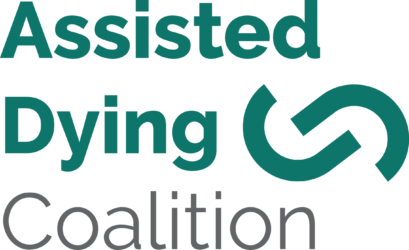 Yesterday, the Assisted Dying Bill on the Isle of Man passed its first reading, an important stage in the process of legalising assisted dying for residents.
Yesterday, the Assisted Dying Bill on the Isle of Man passed its first reading, an important stage in the process of legalising assisted dying for residents.
The Bill would give terminally ill people on the Isle of Man the choice to end their own life. Humanists UK welcomes its progress but hopes to see the eligibility criteria changed to include individuals who are incurably and intolerably suffering.
The Bill was brought to the House of Keys, the lower House of the Tynwald, by Dr Alex Allinson MHK. Last year, the House voted by 22-2 last year to allow the Bill to be introduced.
A series of jurisdictions such as Scotland, France and Jersey are moving to legislate on assisted dying. Ireland has also launched a special committee to examine this issue. With respect to England and Wales, the UK Parliament’s Health and Social Care Committee’s inquiry into assisted dying is making steady progress, having heard evidence from Switzerland today.
Through Humanists UK’s work with the Assisted Dying Coalition, it is supporting My Death, My Decision Isle of Man in its campaign for a compassionate law on the Island.
Humanists UK Assisted Dying Campaigner Nathan Stilwell said:
‘More and more jurisdictions are moving to legislate to allow people to have compassionate choices at the end of their lives. Evidence around the world is showing that a safe and workable assisted dying law is not only possible but absolutely necessary for human dignity.
‘As a humanist, I adamantly believe we all have a right to live our lives by our own personal values – and that should include the option of a compassionate death. Legalising assisted dying gives people insurance, it means they can live dignified and meaningful lives, and they can take control when their quality of life falls below a standard they chose to be acceptable.’
Notes:
For further comment or information, media should contact Humanists UK Assisted Dying Campaigner Nathan Stilwell at press@humanists.uk or phone 07456200033.
Read about the Assisted Dying Coalition.
Read more about a decade of campaigning for the legal right to die – at home and abroad.
Read more about our campaign to legalise assisted dying in the UK.
Humanists UK is the national charity working on behalf of non-religious people. Powered by 100,000 members and supporters, we advance free thinking and promote humanism to create a tolerant society where rational thinking and kindness prevail. We provide ceremonies, pastoral care, education, and support services benefitting over a million people every year and our campaigns advance humanist thinking on ethical issues, human rights, and equal treatment for all.

 Today in Parliament, DIGNITAS told the Health and Social Care Committee that the UK should legalise assisted dying. The Committee
Today in Parliament, DIGNITAS told the Health and Social Care Committee that the UK should legalise assisted dying. The Committee  A majority of Surgeons support assisted dying, according to
A majority of Surgeons support assisted dying, according to  Today in Parliament, the Health and Social Care Committee
Today in Parliament, the Health and Social Care Committee  Today, the Human Rights (Joint Committee)
Today, the Human Rights (Joint Committee) 

 Seven of the 11 members of the Health and Social Care Select Committee have previously opposed assisted dying, with only three being known to be supportive. Last month the Committee launched an inquiry on assisted dying. Humanists UK has said it is vital that the Committee takes a careful, balanced look at the evidence, and listens to those who want an assisted death and their loved ones.
Seven of the 11 members of the Health and Social Care Select Committee have previously opposed assisted dying, with only three being known to be supportive. Last month the Committee launched an inquiry on assisted dying. Humanists UK has said it is vital that the Committee takes a careful, balanced look at the evidence, and listens to those who want an assisted death and their loved ones. Humanists UK has
Humanists UK has 
 My Death, My Decision has officially launched a campaign group on the Isle of Man. The grassroots group Let Me Choose will become My Death, My Decision Isle of Man and will campaign to legalise assisted dying on the island for the terminally ill and incurably, intolerably suffering.
My Death, My Decision has officially launched a campaign group on the Isle of Man. The grassroots group Let Me Choose will become My Death, My Decision Isle of Man and will campaign to legalise assisted dying on the island for the terminally ill and incurably, intolerably suffering.